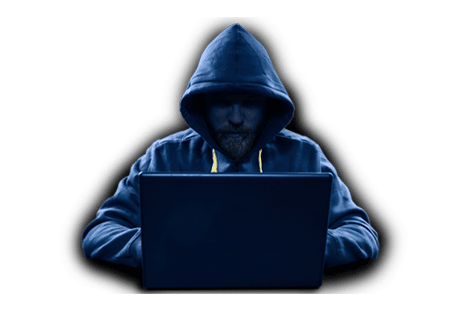10 Signs You’ve Been Hacked: Protecting Your Digital Identity
With more and more personal and sensitive information being stored online, cyber attacks are becoming more common. Hacking can lead to identity theft, financial loss, and damage to your online reputation. To avoid becoming a victim of a hacking incident, it is important to know the signs and take immediate action to secure your online accounts. Here are 10 signs that indicate you have been hacked:
Unusual activity on your accounts
One of the first signs of a hack is unusual activity on your online accounts. This can include:
- Unusual login attempts
- Suspicious activity on your email or social media accounts
- Strange transactions or purchases through your accounts
If you see any of these signs, it is crucial to take action and secure your accounts immediately to prevent further damage.
Mysterious emails or messages
Another sign of a hack is receiving emails or messages from unknown sources that contain links or attachments. These links or attachments could lead to malware or phishing scams that could compromise your security. If you receive a suspicious e-mail or message, delete it and do not click on links or attachments.
Slow performance of your devices
If your computer or device suddenly becomes sluggish or unresponsive, it could be a sign of a malware infection. Malware can run in the background and consume system resources, slowing down performance. If you notice a sudden drop in performance, run a full virus scan to check for any infections.
Pop-ups and advertisements
An increase in pop-ups and ads on your device may indicate an adware infection. Adware is a type of malware that displays ads to generate revenue for the attacker. If you see an increase in pop-ups and ads, run a virus scan to check for any infections and remove malicious software.
Strange toolbars or add-ons
The appearance of new toolbars or plug-ins in your Web browser may indicate a malware infection. Malware often installs these types of extensions to collect information or display advertisements. If you see new toolbars or plug-ins, uninstall them and run a virus scan to check for any infections.
Friends receive strange messages from your account
If your friends start receiving strange messages or emails from your accounts, it could be a sign that your accounts have been compromised. Hackers often use compromised accounts to send spam or phishing scams to the victim’s contacts. If you receive messages from friends about strange messages, secure your accounts immediately.
Passwords don’t work
If you try to log into your accounts and find that your passwords no longer work, it could mean that your accounts have been hacked. Hackers often change a victim’s password to lock them out of their accounts. If your passwords don’t work, reset them immediately and enable two-factor authentication for added security.
Antivirus software is disabled
If your antivirus software suddenly stops working or is disabled, this could be a sign of a malware infection. Malware often tries to disable antivirus software to prevent it from detecting and removing the infection. If you notice that your antivirus software is disabled, reinstall it and run a full virus scan.
Unusual credit card charges
If you see unusual charges on your credit card, it could be a sign that your information has been stolen. This can happen if a hacker gains access to your financial information and uses it to make unauthorized purchases. If you see unusual charges, report them to your bank immediately.
Your personal information is released online
If your personal information, such as your name, address, and phone number, is suddenly released online, it may be a sign that you have been hacked. Hackers often steal personal information and sell it on the dark web, where it can be used for identity theft or financial fraud. If you discover that your personal information has been released online, take steps to secure your accounts and check your credit reports for suspicious activity.
Conclusion
Being hacked can have serious consequences, but if you are aware of the signs, you can take action to secure your online accounts and protect your digital identity. By checking your accounts regularly, keeping your software and security measures up-to-date, and being alert to suspicious emails and messages, you can protect yourself from cyber-attacks and being hacked. Stay informed and stay protected!
Get in touch
Interested in planning a security awareness training for your staff? Or are you curious about how you can increase awareness for your organization? Then please contact us using the form below. We will be happy to answer all your questions!

